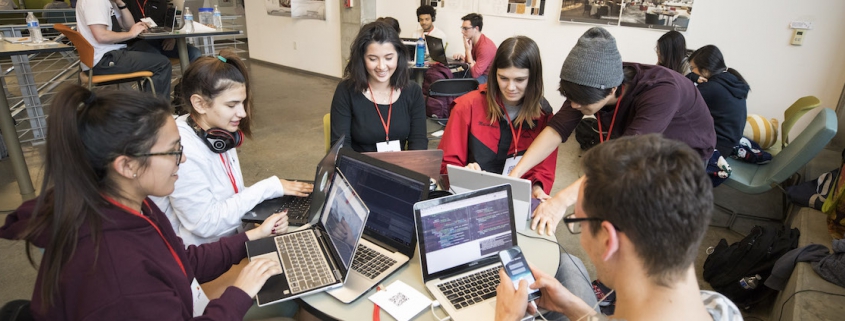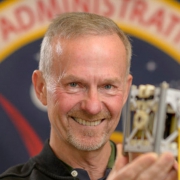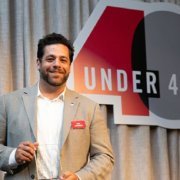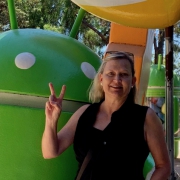How Computer Science became one of UGA’s most popular majors
Journalism, business administration, pharmacy, computer science: believe it or not, these majors are in ascending order of total enrollment at the University of Georgia.
In fact, computer science has the fourth highest enrollment among all majors at UGA. And the graduate degree computer science program is the fastest growing program on campus, having seen a 60 percent enrollment increase from fall 2013 to fall 2018.
Combine that with the undergraduate program’s 153 percent rise in enrollment in the last five years and you have, undeniably, one of UGA’s most popular departments. We talked with several CS alumni to ask them about their experience and find out more.
Established in 1984, the Department of Computer Science in the Franklin College of Arts and Sciences at UGA has expanded to include more than 195 enrolled graduate students and over 1,100 undergraduates. Lori Kittle (BS ’86) was among the first graduates with a degree in computer science.
“I simply felt like the future would be all about the computer, although I certainly did not envision all the advances that have occurred,” said Kittle. Along with the coursework, Kittle said, “One of my favorite memories at UGA is making lifelong friendships with my fellow CS classmates.”
Kittle attributes her successful career, including a stint as the Chief Information Officer at Landry’s, Inc.—a $4 billion restaurant, hospitality, and entertainment business—to her education at UGA. She demonstrated her appreciation of the department when she created a scholarship fund for computer science students. Kittle also serves on the department’s advisory board, which provides industry input that helps guide curriculum for the program.
Like Kittle, Maja Culum (BS ‘19) chose to study computer science because she knew “coming into the university that technology was becoming prevalent within every field,” and there was no way around interacting with it. Culum, who was hired full-time in the UI/UX department at NCR Corporation, believes studying computer science at UGA allowed her to “choose a role within the tech industry that suited her strengths and interests.”
“That’s what I like most about Computer Science: it’s never limiting, and there’s so much to choose from,” said Culum. “My experience in the Department of Computer Science at UGA was both challenging and incredibly rewarding. The professors are knowledgeable and always willing to help, which encouraged me to stick with the major despite the challenges.”
The comprehensive coursework and faculty expertise Culum credits have also led to the growing recognition of the department. Dr. Thiab Taha, UGA Computer Science department head, believes the diversity in research expertise and the increasing number of courses provides students the opportunity to choose the path they are most interested in.
Students interested in engaging in technology-centric extracurricular activities can join one of many clubs and groups, including Data Dawgs or UGA Hacks, which hosts a hackathon every spring on campus. The UGA Computer Science department also houses the Institute for Cybersecurity and Privacy, which was designated a National Center of Academic Excellence in Cyber Defense Research (CAE-R) through academic year 2022.
Muhammed Ahmed’s (BS ‘18) passion for problem solving drew him to major in computer science at the University of Georgia, but it was the countless opportunities available within the department that he loved most about his studies.
“Majoring in computer science helped me secure my dream job,” said Ahmed, a data scientist at Mailchimp. “The program provided me with a strong technical foundation and the soft skills I need to communicate effectively. I had the chance to learn through clubs, research projects, hackathons and many on-campus events.”
All of the above are reasons a firm like Forrester Research calls Atlanta one of the US’ five elite tech talent markets. As businesses continue to take advantage of this rich market, UGA CS graduates are reaping the benefits, finding positions in global organizations like NCR, The Home Depot and AT&T.
There appears to be no slowdown in the rise of computer science at UGA, either. Employers and partners of the university are finding new ways to directly engage students through career and internship fairs, UGA Hacks’ hackathon, student organizations and industry panels. And as UGA CS alumni continue their career progression and become the leaders of those employers and UGA partners, UGA’s tech talent pipeline will only become stronger.




 SculptHouse
SculptHouse




